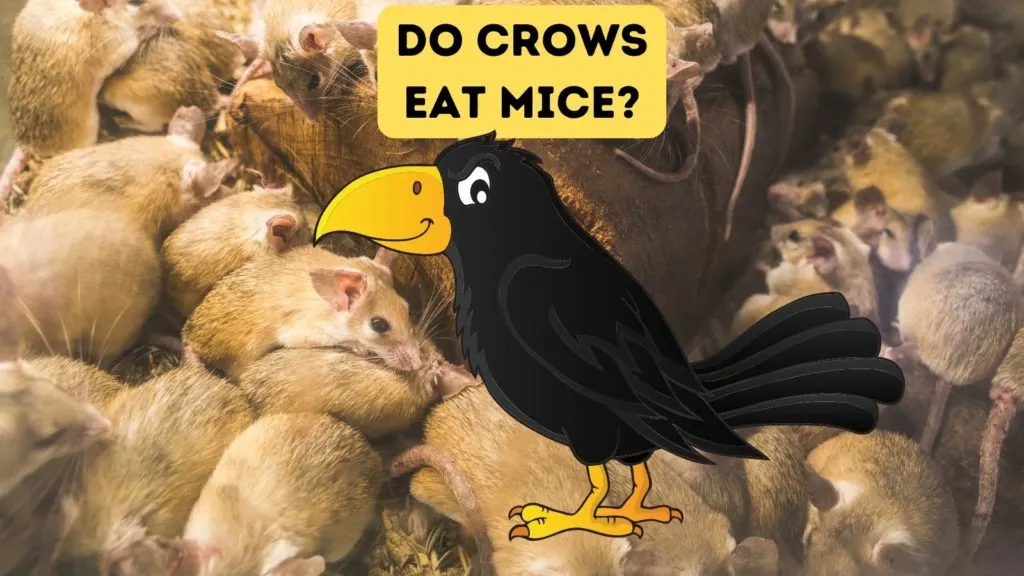Crows are known for their adaptability and intelligence, particularly when it comes to their diet. A common question among bird enthusiasts is whether crows eat mice. Understanding the dietary habits of crows gives us insight into their role in the ecosystem and helps in implementing better wildlife management practices.

Mice as Part of Crows’ Diet
Crows are omnivorous birds, which means their diet includes both plant and animal matter. While their primary diet consists of fruits, nuts, seeds, and insects, crows are also opportunistic feeders.
This opportunistic nature means they do not shy away from eating small mammals, including mice, when the opportunity arises.
Mice are not a daily staple in a crow’s diet, but they are consumed when other food sources are scarce or if mice are readily available. Crows may hunt for mice or scavenge on those that have already died.
The Impact of Rodenticides on Crows
The use of rodenticides to control mouse populations presents a significant risk to crows and other wildlife. Rodenticides are poisons designed to kill rodents, but they can also harm or kill animals that prey on or scavenge rodents that have ingested these toxins. This includes crows, which may consume poisoned mice and suffer secondary poisoning.
Secondary poisoning from rodenticides disrupts the natural food chain and can have a detrimental impact on bird populations, particularly those of scavenging and predatory birds like crows.
It’s crucial for homeowners and pest control services to consider the wider environmental impact and seek alternative, wildlife-friendly methods of rodent control.
Preventing Mice Around Bird Feeders
Bird feeders can sometimes attract rodents, including mice, due to spilled seeds or accessible food sources. To minimize this:
- Regular Cleaning: Keep the area around bird feeders clean and free of spilled seeds. Sweep the area and pick up discarded seeds that birds may have kicked out of the feeder.
- Don’t Overfeed: Don’t put out more food that you think will be consumed that day if you’re having a problem with mice.
- Proper Feeder Design: Use feeders that are designed to minimize spillage. Some feeders have trays or mechanisms that catch fallen seeds. Table feeders are another good choice.
- Secure Storage: Store birdseed in secure, rodent-proof containers to prevent attracting mice to the storage area. We store our bird seed in a metal trash can–with its lid secured by a bungee cord. That keeps out mice as well as raccoons, coyotes, and anyone else swinging by for a visit in the night.
By taking these steps, you can enjoy bird feeding while minimizing the unintentional attraction of mice and other rodents, creating a safer and healthier environment for both birds and wildlife.
More Posts You Might Like
- 8 Letter Bird Names - August 14, 2024
- 7 Letter Bird Names - August 14, 2024
- 7 Birds Named After Famous People - July 23, 2024
